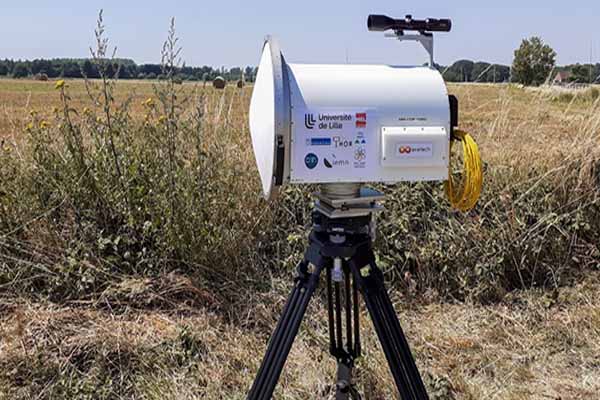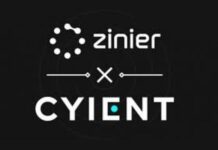Microelectronics and Nanotechnology (IEMN, Lille, France) and R&S have expanded their collaboration to research THz communications that utilize photonic technologies. In a recent demonstration, IEMN reached a milestone when researchers achieved generated a 300 GHz bidirectional link over an outdoor distance of 645 m for use in future 6G backhauling scenarios. The R&S SMA100B microwave signal generator from Rohde & Schwarz was a crucial component in the performance test setup. The R&S SMA100B provides an ultra-low phase noise signal that helps accelerate THz communications research and development to ready it for industrialization.
Munich and Lille, May 30, 2023 — The door to the 6G era is now open and sub-THz communications systems up to the 300 GHz band are becoming a reality. Instrumentation, testbeds and metrology are urgently needed for these new frequencies, demanding approaches that fill the gap between the millimeter wave and optical bands.
For several years, Rohde & Schwarz and the IEMN team under Prof. Guillaume Ducournau have researched high frequency measurements and the integration of Rohde & Schwarz test and measurement solutions with photonic technologies to accelerate advances in emerging 6G technologies.
Studying new spectrum resources will help advance future wireless communications systems. Backhaul frequencies are expected to increase once the E-band communications market is saturated. Potential frequencies such as D-band (110-170 GHz) systems are expected to enter the market sometime after 2025, while H-band or sub-THz bands up to 300 GHz will come sometime after 2030. Developing new architectures and test systems to characterize mmW/THz performance at both the component and system levels is very important for these wireless trends.
Addressing the very high end of the millimeterwave spectrum (300 GHz and beyond) is very challenging on the component and system levels. Instrumentation has recently experienced several advancements, including vector network analyzers, signal and spectrum analyzer frontends and sub-systems. The IEMN performs state-of-the-art THz component and system characterization with the R&S ZNA vector network analyzer and various frequency converters covering frequencies from the millimeterwave range up to 1.1 THz like the R&S ZC1100.
Recent research collaborations in electronic and photonic technologies have proposed a super-heterodyne architecture that would enable channel aggregation from the V- band (40-75 GHz) or E-band (60-90 GHz) to the THz spectrum. The THz carrier is obtained by frequency multiplication with a photonics based local oscillator synchronized to a reference frequency. Rohde & Schwarz supported the testing team in Lille with a state-of-the-art R&S SMA100B solution that allows for ultra-low phase noise reference signal generation. This instrumentation approach enables a spurious-free local oscillator feed signal for the THz upconverter/downconverter, limiting spurious tones in THz spectra.
The system is the first to successfully integrate THz frequency duplexing and allow simultaneous transmission and reception at both ends with a single antenna pair. After validating the system performance in a lab, it was tested in Germany with two pairs of antennas over a distance of 150 m, as part of the EU-Japan ThoR project, followed by outdoor, over-the-air tests in France over a distance of 645 m with a system transmission rate of 12.6 Gbps. This is the maximum distance achieved by a THz duplexing system in the 300 GHz band.
Prof. Guillaume Ducournau, head of THz wireless communications research at IEMN, says, “With our expertise in THz technologies, such as optoelectronic THz photomixers, high-speed electronic receivers and THz instrumentation, we are committed to researching new 6G areas, developing prototypes, verifying technologies and proposing advanced measurement services for our collaborators. To cope with the challenges ahead, we are glad to continue and expand our collaboration with Rohde & Schwarz and develop a solid foundation for industrialization.”
Taro Eichler, technology manager at Rohde & Schwarz, says, “We are delighted to collaborate with IEMN on integrating electronic and photonic technologies for THz communications and hope to extend the approach to other applications. The research findings will also provide valuable input for industry specification groups, such as the recently created ETSI ISG THz, as well as other standardization bodies.
Rohde & Schwarz actively supports 6G research activities across Europe, Asia and the US, while also contributing to research projects, the work of industry alliances, and collaborating with leading research institutes and universities. The company’s test and measurement expertise and solutions are opening the door to the next generation of wireless communications for commercial deployment by the year 2030.


















